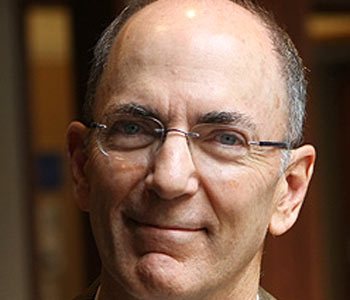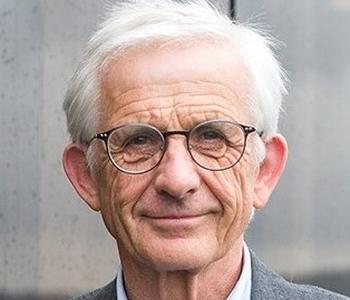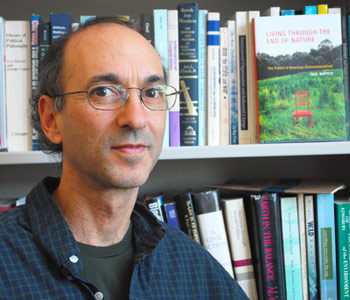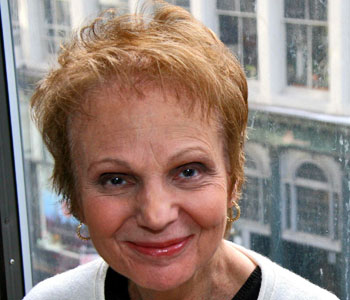Paul Kahn
Political Theology: Four New Chapters on the Concept of Sovereignty
Columbia University Press
224pages, 5 ½ x 8 ¼ inches
ISBN 978 0231153409
This is a small book about a large topic: politics as a practice of freedom. I attempt to turn political theory away from its obsessive concern with abstract norms of justice, and show that what is at stake in politics is the free creation of ourselves as a people.
Contemporary political theory has been dominated by a single set of questions concerning the nature of justice. In one way or another, theorists ask “What should the law be?”
But the problem is not always how to frame a constitution adequate to our ideas of equality and dignity. While it has indeed been an achievement of modern political theory to make human and civil rights a sort of background assumption of our attitude toward political regimes and practices, liberal theory has reached a dead end. It offers minor variations on tired arguments. We do not need to hear once again that certain rights follow from a conception of the individual as an autonomous agent.
More important, this whole approach misunderstands the nature of a free practice of politics.
At every level, political action requires decision. Norms don’t apply themselves; the state does not simply continue as if it were a machine that could run on its own once the law is set. The nation maintains itself only as long as citizens will the state’s existence. Political theory must turn from reason to will, from abstract norms to the free decision.
Political experience is not just a matter of trying to get our law right. Especially in the years after 9/11, Americans have been reminded that political identity can be a matter of life and death. A politics in which sacrifice is imagined as a possibility is a politics of ultimate meanings.
Political theology begins from the observation of how quickly politics can become a site of ultimate meanings. We think we are going to the office, but find ourselves on the front line of the war on terror. To understand this experience, we have to turn our attention to the political imagination.
A modern political theology is not about the relation of the church to the state, but rather about the nature of our secular faith in the popular sovereign. For this, Americans have lived and died from the Revolutionary war battlefields to Ground Zero.

A modern political theology is not about the relation of the church to the state, but rather about the nature of our secular faith in the popular sovereign.
If politics plays out on a field of ultimate meanings, then political theory must give way to political theology. Theology here refers not to any of the sectarian beliefs but to the most basic of questions we can ask about our political experience: how do political beliefs and actions construct a world of meaning for the nation?
My answer is that politics is a practice of freedom.
It may be surprising that I develop this theme of freedom by turning to Carl Schmitt, a leading law professor of Weimar who became infamous for his support of National Socialism. In the 1920s, however, Schmitt was trying to analyze the disconnect between liberal theory and political practice. He thought liberalism too concerned with abstract talk on the one hand and with material interests on the other. Liberalism, accordingly, failed to see the need for decision in political life—that norms do not apply themselves, and politics is not simply an alternative to the markets.
In 1922, Schmitt wrote a little book, Political Theology: Four Chapters on the Concept of Sovereignty. It was mostly a discussion, now obscure, of forgotten contemporaries of Schmitt.
That book did, however, contain two sentences that have become famous in Western political theory. First: “Sovereign is he who decides on the exception.” Second: “All significant concepts of the modern theory of the state are secularized theological concepts.”
These sentences introduce two critical ideas that remain quite foreign to liberal political theory.
The first suggests that we cannot just focus on the norm but must consider the exception to the norm as well. This is a profoundly important idea in American political life: the popular sovereign always can act independently of the law. It is our revolutionary tradition: action by the popular sovereign is not bound by law; it is always the exception.
Acting outside of law, the popular sovereign wills itself into existence. Before there is the Constitution, there is the decision. Thus, the first task of a contemporary political theology is to shift the focus of attention from reason to will. Justice does not create the state, but rather an act of will brings America into existence.
Revolution represents the first decision by the popular sovereign. At this moment, the popular sovereign creates itself. That, however, cannot be the end of the matter.
Whenever the state’s existence is challenged, there must be a decision to reaffirm the state. To the individual citizen, this decision takes the appearance of sacrifice. The state depends upon the willingness of citizens to sacrifice, and sacrifice is always an act beyond the law.
A modern political theology begins with the relationship among these concepts—popular sovereignty, sacrifice, and decision.
Schmitt’s second remarkable sentence, referring to “secularized theological concepts,” points to the relationship between traditional theology and a contemporary political theology.
Political theology has nothing to do with the way in which particular, sectarian faiths have a hold on political power. Quite the opposite: the inquiry focuses on the way in which the modern state has stepped into the place of the church as a source of ultimate meanings—and ultimate demands—upon the citizen. The faith that has mattered for 200 years in the West has been a faith in the state as embodying the possibility of overcoming our individual limits.
My book is unique in its method and the direction I give to a contemporary political theology. Methodologically, I present “Four New Chapters on the Concept of Sovereignty.”
Each of my chapters bears the same title as one of Schmitt’s. Each proceeds by engaging the question Schmitt posed—but directs it toward our own politics of popular sovereignty.
What emerges will be startling to anyone who knows of Schmitt’s association with National Socialism. The political theology I develop is fundamentally an inquiry into the nature of freedom.
Each of my chapters focuses on a different aspect of freedom, beginning with the idea of the exception as the sovereign decision. An exception is an act taken with respect to a norm but not determined by the norm. The exception is neither arbitrary nor determined. It is precisely the act of a free subject.
As my inquiry proceeds, I show that this idea of the sovereign decision is not exceptional at all. Rather, it is precisely what is at stake in every legal judgment, and indeed in every philosophical inquiry.
To be free, is to be determined neither by causes nor by norms. A decision acknowledges a norm, but is not simply a deductive application of a norm. To be free is to think and act for oneself.
A browser, who simply starts at the beginning and reads through the initial discussion of American exceptionalism, will see how our most familiar political practices and beliefs include a distinctive set of commitments that require a political theological explanation.
American exceptionalism is completely impenetrable to liberal political theory, which sees it only as an unjust claim of privilege. That approach fails to understand the stakes, which are about identity, existence, and decision—not about norms.
If American exceptionalism remains a vibrant practice and set of beliefs, we must turn from traditional political theory to a political theology.
For Americans, law is only in part about justice. More importantly, law expresses the will of the popular sovereign.
We find in law an expression of our national identity as a self-governing community that has a singular character, to be maintained across generations.
This is the reason we instinctively resist international law—except perhaps when it limits itself to the regulation of transnational markets and forms of communication. We resist human rights law, even when the standards are much the same as our own civil rights law.
We will not subordinate the Constitution to a global order of rights. There is, for this reason, virtually no political support for international courts, including the new International Criminal Court.
Schmitt talked about the sovereign decision for the exception. We talk about American exceptionalism. These two forms of exception are deeply related. To understand that relationship we have to redirect political theology to a practice of popular sovereignty.

An exception is an act taken with respect to a norm but not determined by the norm. The exception is neither arbitrary nor determined. It is precisely the act of a free subject.
Political theory at the turn of the millennium was a dying field, of interest to only a dwindling group of academics. The innovations in the field were European imports that largely reflected the complicated history of post-Marxist thought there. These innovations, for the most part, made no connection with the American political imagination.
We need a political theory that takes seriously our own political practices and beliefs. We must talk less about what politics should be, and more about who we are.
Of course, we are free to criticize what we find: we are not bound to our political practices as if to nature itself. But if our criticisms are going to have any purchase on the larger public, we must first understand the set of meanings that have informed our political practices for a very long time.
Political Theology promises a rebirth of political theory as an inquiry into the nature of human freedom as it has been realized in a distinctive set of practices and beliefs.
I have sought to lay a foundation, which I hope will be built upon by broad and deep inquiries into the American social imaginary as it responds to its own creation: a practice of popular sovereignty. Those inquiries should span law, history, and popular culture. In each of these domains of the imagination, we are practicing our own freedom.




We don't put paywalls. We don't distract you with ads. We don't sell your data.
Please help to keep this running!